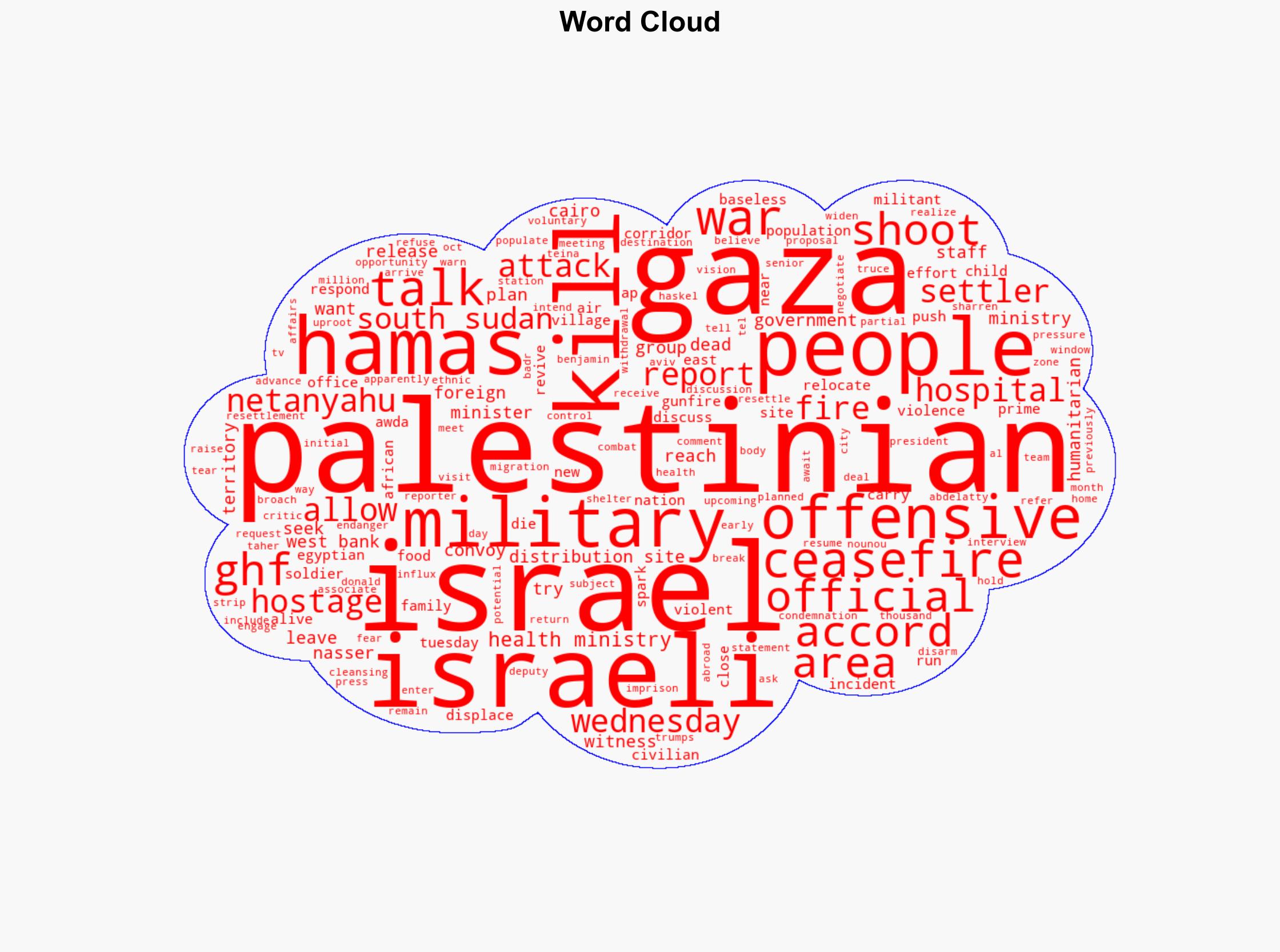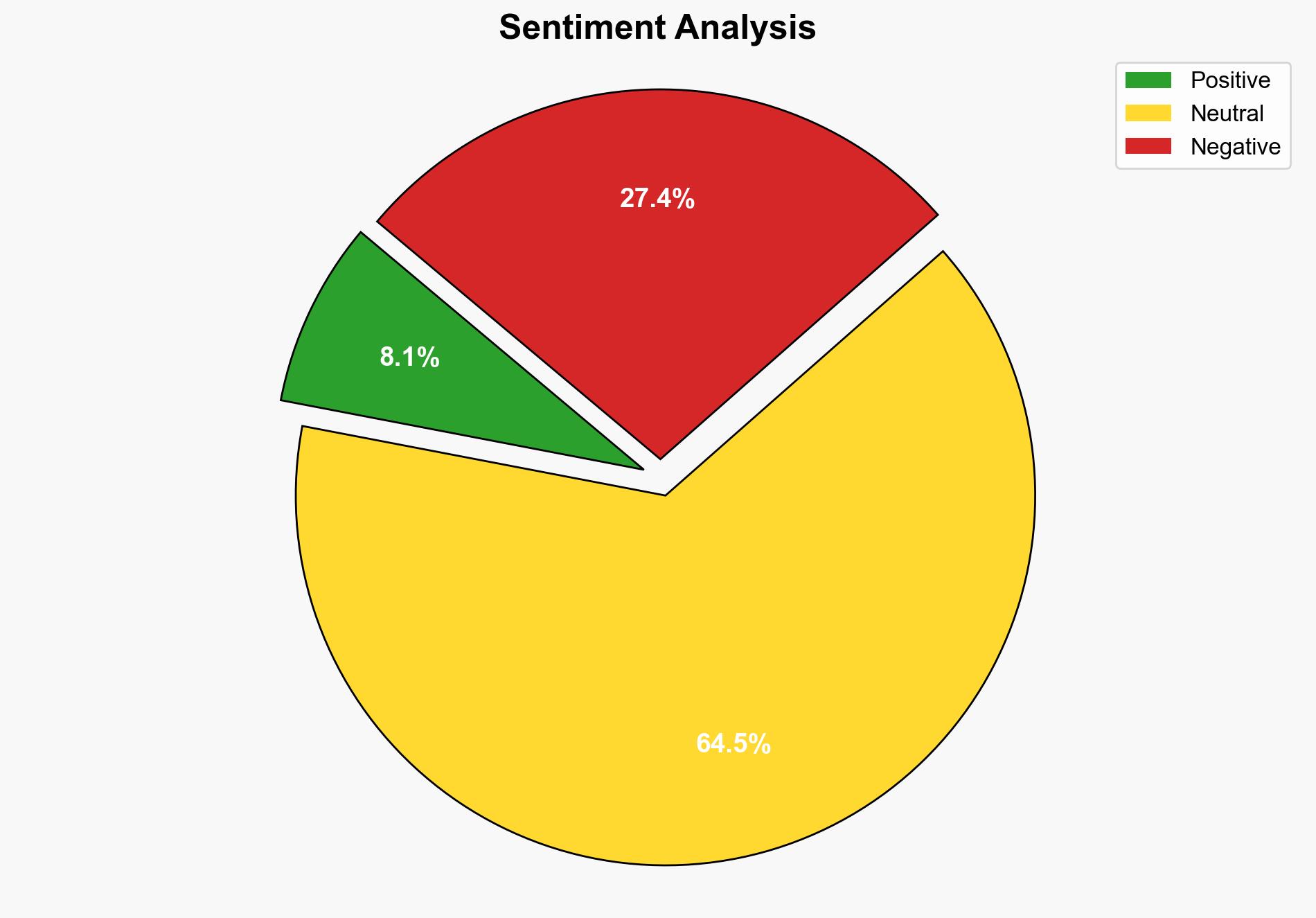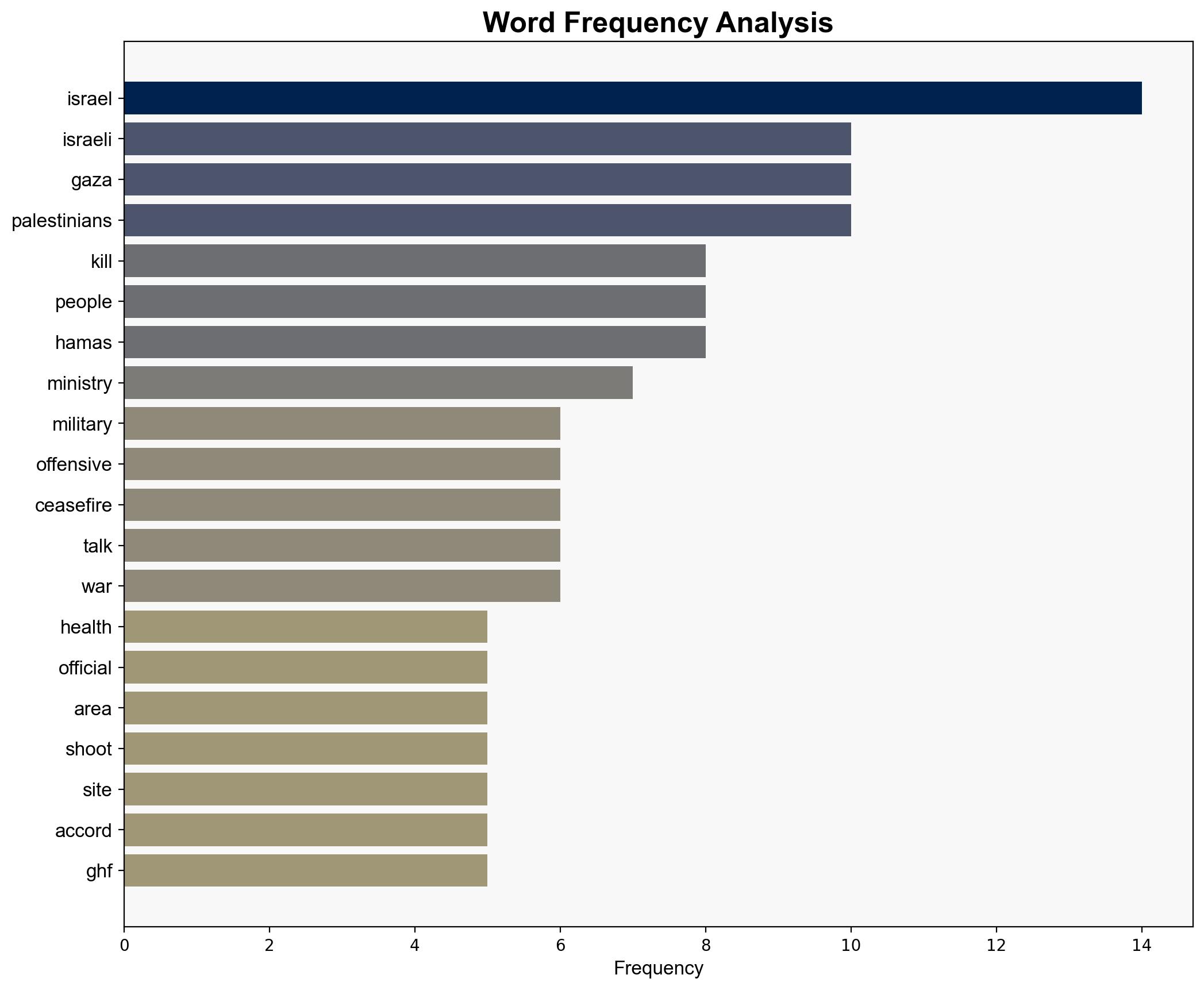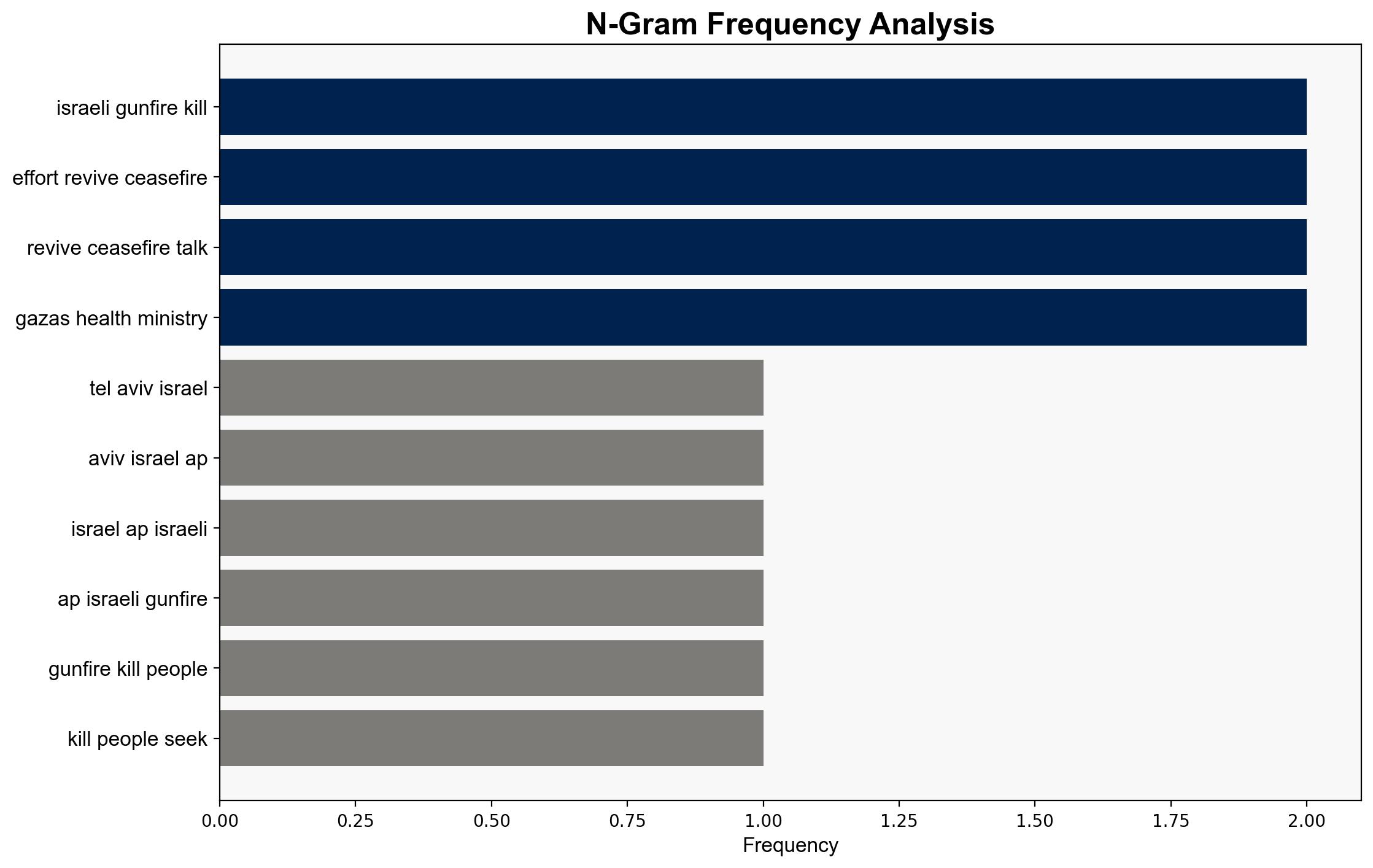Israel Kills 25 Aid-Seekers As Netanyahu Says He’ll ‘Allow’ Palestinians To Leave Gaza – HuffPost
Published on: 2025-08-13
Intelligence Report: Israel Kills 25 Aid-Seekers As Netanyahu Says He’ll ‘Allow’ Palestinians To Leave Gaza – HuffPost
1. BLUF (Bottom Line Up Front)
The situation in Gaza is escalating, with significant humanitarian and geopolitical implications. The most supported hypothesis is that Israel’s actions are part of a strategic effort to pressure Hamas into a ceasefire while simultaneously testing international reactions to potential population relocation. Confidence level is moderate due to conflicting reports and the complexity of the situation. Recommended action includes diplomatic engagement to de-escalate tensions and humanitarian assistance to affected populations.
2. Competing Hypotheses
1. **Hypothesis A**: Israel’s military actions and the proposal to allow Palestinians to leave Gaza are primarily aimed at weakening Hamas by creating internal pressure and reducing civilian casualties in anticipation of a larger military offensive.
2. **Hypothesis B**: The actions are part of a broader strategy to alter the demographic landscape of Gaza, potentially aligning with long-term geopolitical goals of resettling Palestinians elsewhere, as suggested by reports of discussions with South Sudan.
Using ACH 2.0, Hypothesis A is better supported by the immediate context of military operations and the stated goal of a ceasefire. Hypothesis B, while plausible, relies on less concrete evidence and more on speculative long-term objectives.
3. Key Assumptions and Red Flags
– **Assumptions**: It is assumed that Israel’s primary goal is to weaken Hamas militarily. Another assumption is that the international community will not support large-scale population relocation.
– **Red Flags**: The report of discussions with South Sudan is unverified and could be misinformation. The lack of a clear response from Israel regarding ceasefire negotiations raises questions about their intentions.
– **Blind Spots**: The potential for internal Israeli political dynamics influencing military decisions is not addressed.
4. Implications and Strategic Risks
– **Geopolitical**: Escalation could lead to broader regional instability, drawing in neighboring countries and affecting global diplomatic relations.
– **Humanitarian**: Increased violence could exacerbate the humanitarian crisis in Gaza, leading to international condemnation and pressure on Israel.
– **Psychological**: The perception of ethnic cleansing could galvanize anti-Israel sentiment globally, impacting Israel’s diplomatic standing.
5. Recommendations and Outlook
- Engage in diplomatic efforts to mediate a ceasefire and prevent further escalation.
- Provide humanitarian aid to alleviate the immediate suffering of civilians in Gaza.
- Monitor regional reactions and prepare for potential backlash or escalation.
- Scenario Projections:
– **Best Case**: Successful ceasefire and reduction in hostilities.
– **Worst Case**: Full-scale conflict leading to regional instability.
– **Most Likely**: Continued skirmishes with intermittent ceasefire negotiations.
6. Key Individuals and Entities
– Benjamin Netanyahu
– Taher al-Nounou
– Sharren Haskel
– Badr Abdelatty
7. Thematic Tags
national security threats, geopolitical strategy, humanitarian crisis, Middle East conflict





